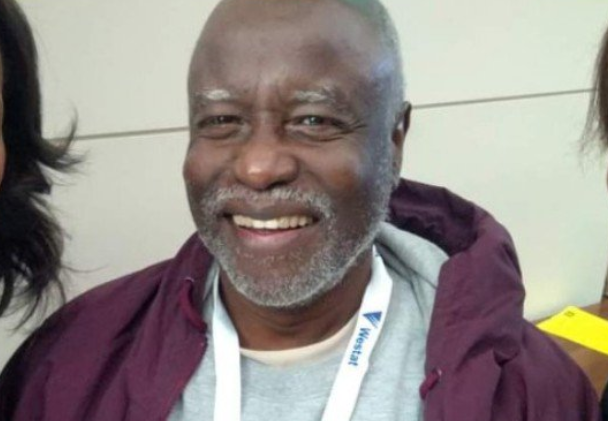Unsung hero Dr. William "Bill" Jenkins, the whistleblower who tried to put an end the Tuskegee syphilis study, has died at 73.
According to The Washington Post, Jenkins died Feb. 17 in a hospital in Charleston, South Carolina. His wife, Diane Louise Rowley, told the paper his death was caused by complications due to the inflammatory disease sarcoidosis.
Jenkins, an epidemiologist at the Centers for Disease Control and Prevention, spent his career advocating for Black people in the health care industry. Since his days as a student at Morehouse College, he was a passionate activist who was once arrested protesting a whites-only restaurant owned by Georgia Governor Lester Maddox.
“He was always a stalwart in making sure the research he was involved in was highly ethical,” Rowley told The Post. “He got involved several times at CDC in objecting to planned studies, trying to make sure a study was not started, or was revised to the point where it would have a better, ethical approach.”
The activist was also a part of the Student Nonviolent Coordinating Committee and a voting rights advocate while in high school. In 1967, the UNC Gillings School alumnus recruited into the U.S. Public Health Service Commissioned Corps. As one of the first Black doctors in the corps, he broke ground.
He learned about the Tuskegee experiment via a physician working on the project.
Blavitize your inbox! Join our daily newsletter for fresh stories and breaking news.
About 399 poor Black sharecroppers and laborers from Macon County, Alabama, were poked and prodded by doctors to examine the longterm effects of syphilis.
Articles from medical experts were published in Jenkins' newsletter, The Drum. They warned the public about horrific procedures being done to Black, poor people by the federal government. Letters from himself and his fellow colleagues were sent to national papers, but the experiment continued into the 1970s.
The Gillings School mourns the loss of Bill Jenkins, an alumnus and adjunct professor. Throughout his life, Dr. Jenkins was a staunch advocate for minority health; he worked tirelessly to support survivors of the Tuskegee Study. Read more about his life: https://t.co/Fxjd4oCfa2
pic.twitter.com/PVHsbmKBBq— UNC Public Health (@UNCpublichealth) February 20, 2019
Although he came up short in trying to end the inhumane experiment, he did remain steadfast in helping the survivors. The Boston Globe reports Jenkins ran the Tuskegee Health Benefit Program for a decade.
This program provided health benefits and coverage for those still living with the experiment's effects. He also fought for family members of those experimented on to be eligible to receive benefits.
Jenkins and other health professionals were members of the Tuskegee Syphilis Study Legacy Committee which would ultimately lead President Bill Clinton to apologize for the experiment.
“The United States government did something that was wrong — deeply, profoundly, morally wrong,” President Clinton said in 1997. “It was an outrage to our commitment to integrity and equality for all our citizens. … To our African American citizens, I am sorry that your federal government orchestrated a study so clearly racist.”
Additionally, Jenkins dedicated his life to studying the effects HIV/AIDS have on the Black community. He was one of the first to focus on how the disease affected Black men. Among his many achievements, Jenkins also founded the Society for the Analysis of African American Public Health Issues to keep the Black community knowledgable on matters of health.
Now, check these out:
Former Trump Campaign Staffer Claims Trump Attempted To Kiss Her Without Consent
8 Moments From Michael Cohen’s Testimony That Made Us Serve Some Serious Side-Eye
South African 'Resurrection Pastor' Sparks Twitter Challenge After He Pretends To Bring A Man Back From The Dead
